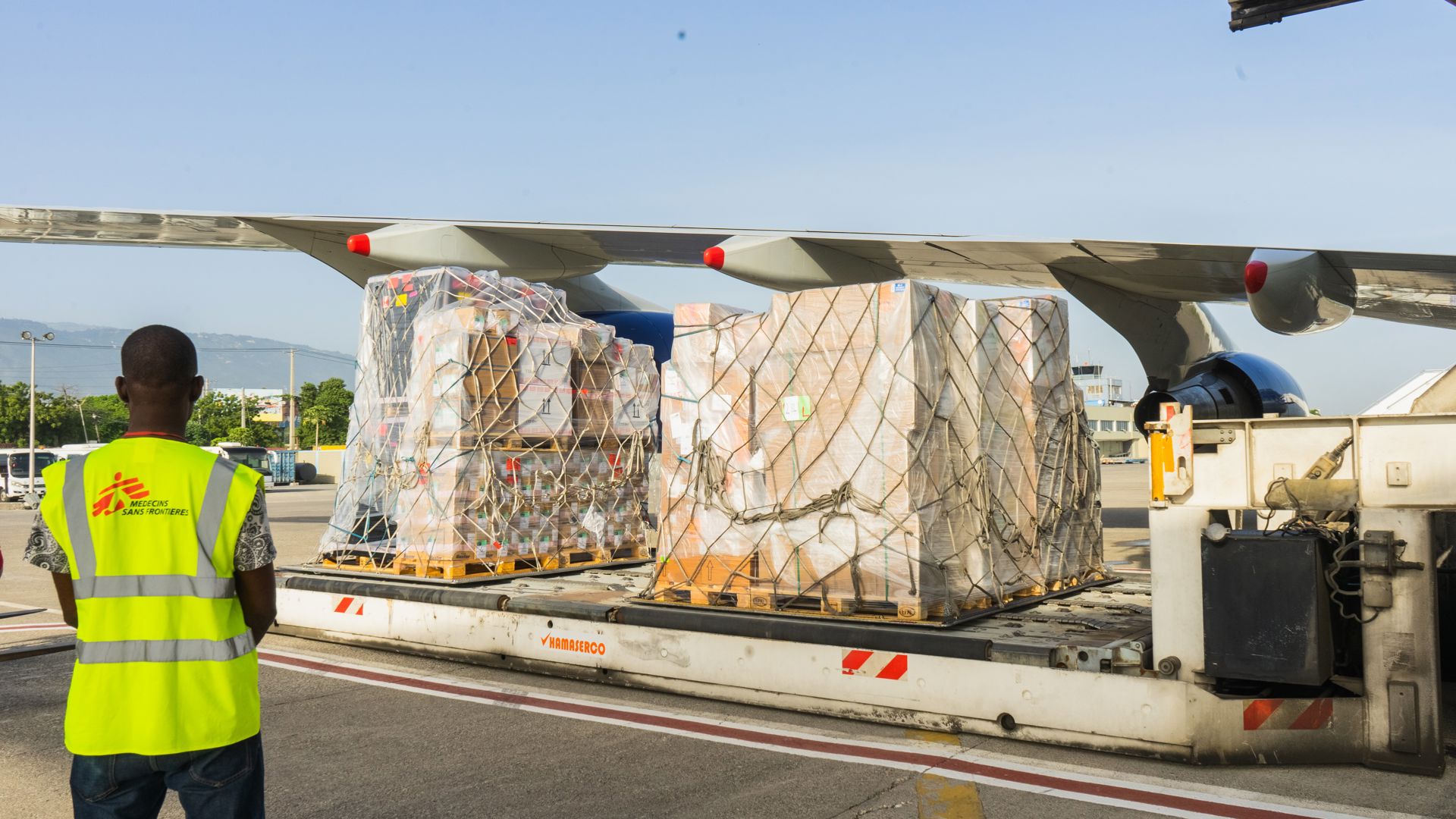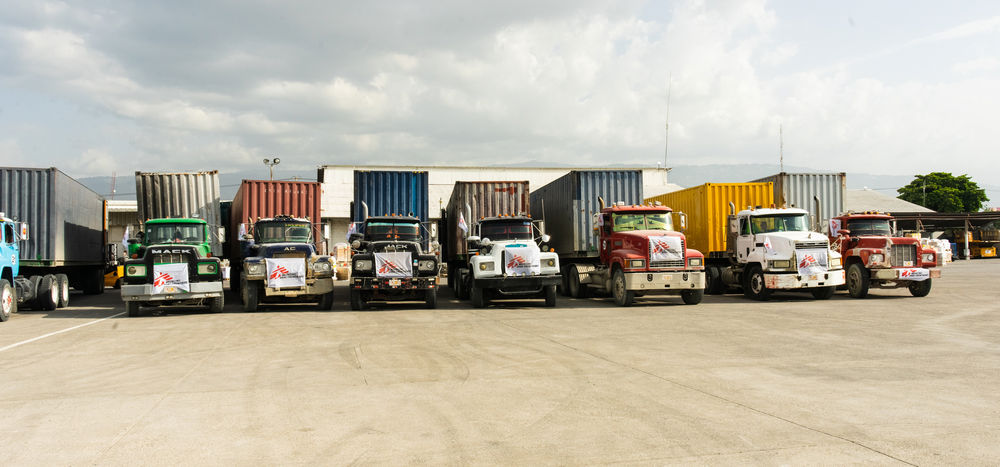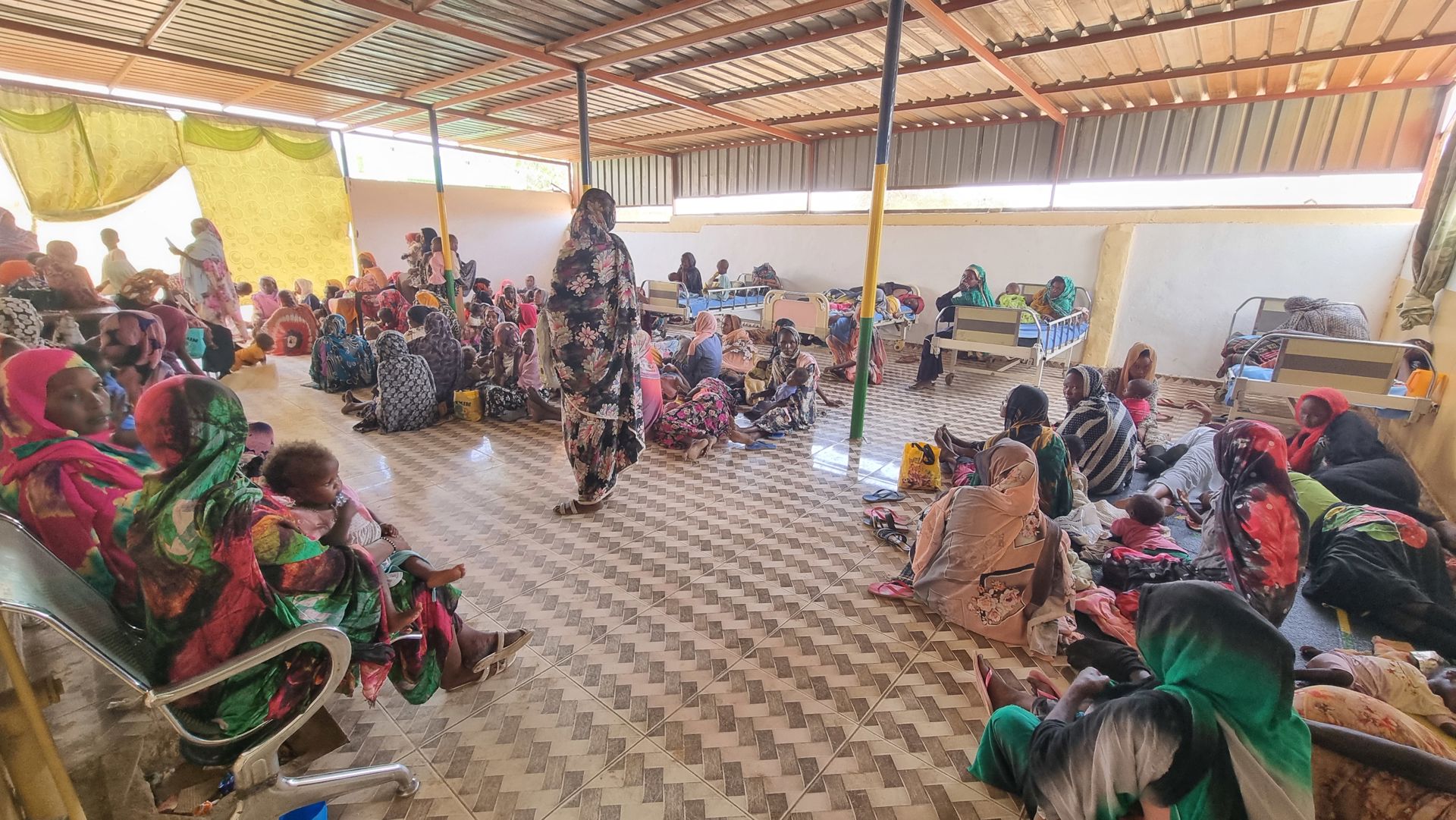The medical humanitarian organisation Médecins Sans Frontières (MSF) has shipped 80 tonnes of medical equipment and supplies to Haiti by air and by road since mid-June, after three months without being able to import medicines and supplies, which directly threatened its activities in the country. Arriving after Port-au-Prince international airport reopened, these shipments meet the urgent need to resupply MSF's programmes, but they are far from covering all the needs of the medical facilities in which MSF teams work.
"In recent weeks, our medical facilities have been seriously under-supplied, to the point where we were in danger of having to interrupt patient care," says Mumuza Muhindo Musubaho, MSF's head of mission.
"This arrival of medicines and medical supplies is a huge relief, but it only allows us to avoid a complete stock-out. We remain very vigilant, and the teams are already working to organise new deliveries in order to reliably continue all our medical activities and thus be able to treat more patients."
Following the escalating violence that has ravaged Port-au-Prince in recent months, the health system in the metropolitan area remains severely affected. Thirty hospitals and health centers were closed in May, and the latent insecurity still prevents the vast majority of residents from visiting the city's remaining functional facilities.
MSF’s general hospital in Cité Soleil, was forced to reduce the number of outpatient consultations by 50% in April due to a lack of medical supplies, and the opening of the patient admissions department had to be postponed. Thanks to the delivery of medical supplies, its capacity has now returned to normal, and the hospital has been able to open 25 inpatient beds, including 15 for children.
 MSF has shipped 80 tonnes of medical equipment and supplies to Haiti by air and by road since mid-June. © MSF
MSF has shipped 80 tonnes of medical equipment and supplies to Haiti by air and by road since mid-June. © MSF
One month after calling on all parties involved to facilitate the delivery of medical supplies to the civilian population in urgent need, MSF salutes the efforts of each party that made these crucial deliveries possible. "These shipments are the result of a close and valuable collaboration between MSF teams and public and customs authorities, in a particularly complicated context," adds Musubaho. "We encourage all parties involved to continue to facilitate the receipt and transit of medical supplies from all health organisations and institutions, in order to ensure access to care for the population."
In Port-au-Prince, medical and humanitarian needs continue to worsen amid a high level of insecurity and reduced access to health care. From March to May 2024, MSF teams carried out 21,707 outpatient consultations and treated 8,449 patients with emergency needs, including 1,128 patients with gunshot wounds and 1,337 victims of road accidents, and admitted 81 severely burned patients to the Tabarre hospital.
In the current state of emergency, supplying medical facilities remains a major concern for MSF. The organisation calls on all parties to respect medical care providers by guaranteeing the safe transport of supplies to medical centres.



